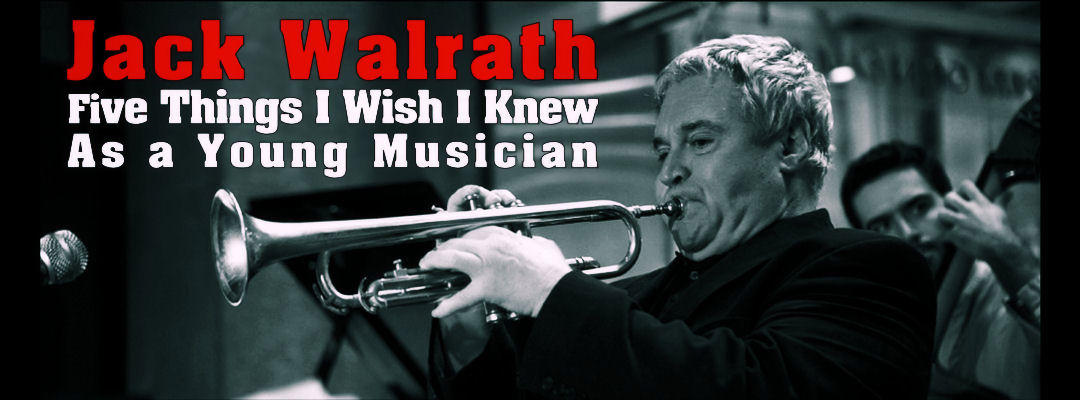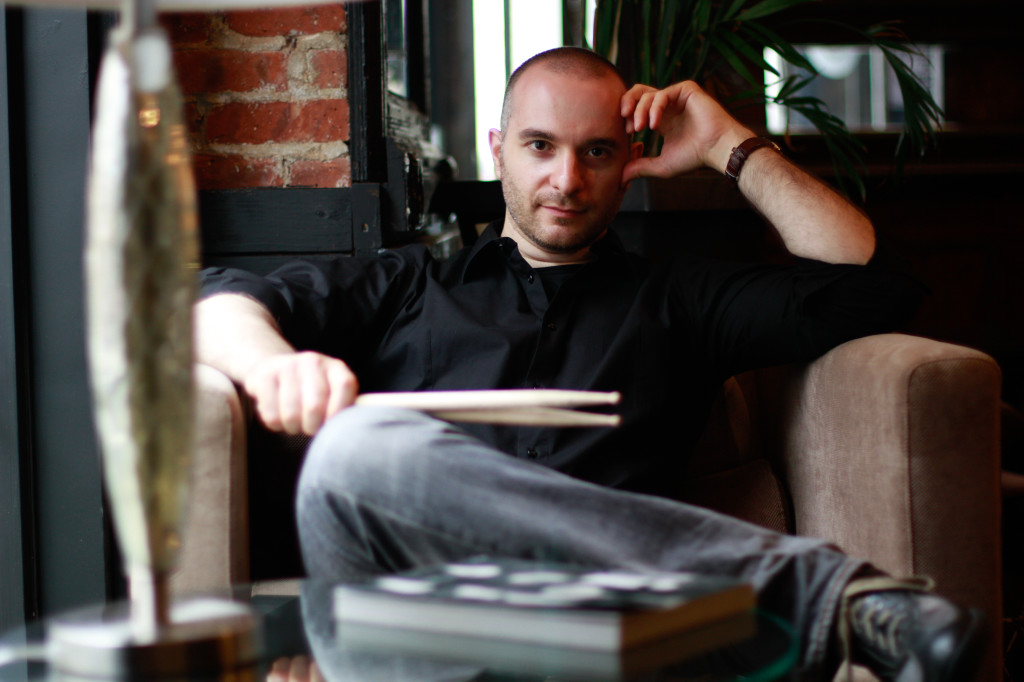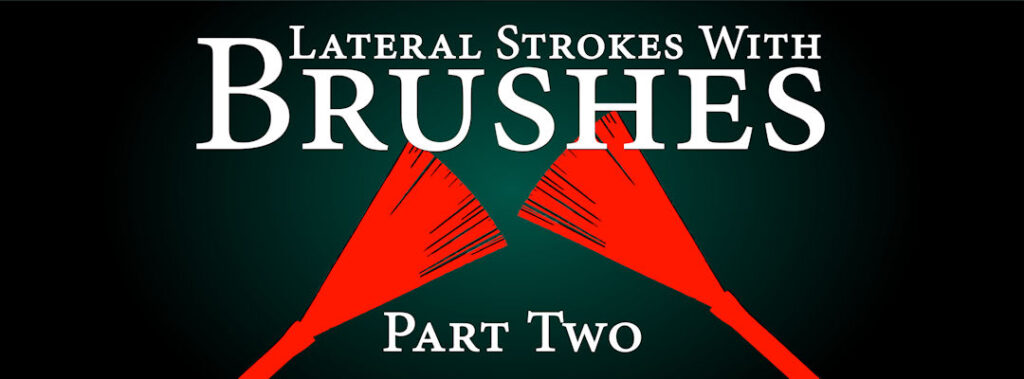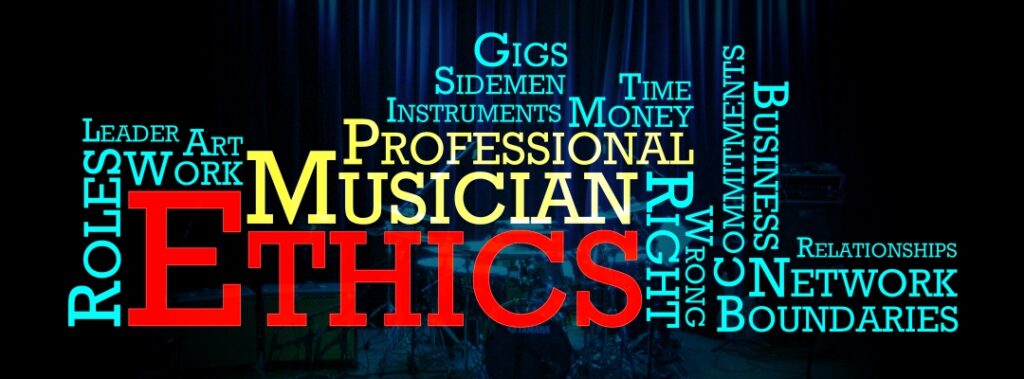(Originally published on March 2, 2016 in the NYEC blog)
Back in July our Michael Feinberg published an article titled 5 Things I Wish I Was Told in Music School. That turned out to be – by far – the most viewed post of our blog, which made us realized that musicians out there are particularly interested in learning from others’ experiences.
Coming from that perspective we decided to make a Jazz Masters series where we ask notorious jazz musicians to share their “Five Things I Wish I Knew as a Young Musician.”
I couldn’t be happier to launch this series featuring trumpeter, composer and arranger Jack Walrath.
Even in the unlikely case that the name doesn’t ring a bell, it is quite probable that you know and love Jack Walrath’s music. He was a member of Charles Mingus’ group between 1974 and 1979 (contributing with arrangements and compositions); he was part of the iconic Miles Davis and Quincy Jones Live at Montreaux alongside a stellar line up; and he is in Joe Lovano’s Rush Hour, just to name three out of many major recordings and projects he took part of.
Jack Walrath’s talents have also been utilized by Ray Charles, Muhal Richard Abrams, Ricky Ford, Sam Rivers, Joe Morello, Mike Clark, Charli Persip, Ray Anderson, Craig Harris, Pete LaRoca, Mike Longo, Elvis Costello, Motown, Larry Willis, George Gruntz, Paul Jeffrey, Gunther Schuller, Hal Galper, the Monk Tentet, Bobby Watson, et al.
He has appeared in films, TV and Radio both as a sideman and leader since 1965. He has released 22 albums as a leader. In addition he has appeared on countless albums with others (Mingus-14, Abrams-3, and others such as Persip, Davis, Lou Rawls, Richie Cole, Ricky Ford, the Jazz Tribe, the WDR Big Band, Jamaaladeen Tacuma and Gruntz to name a few).
Simply put, you’ll have to check out his bio because here there isn’t nearly enough space to include it all.
Jack Walrath’s “Five Things I Wish I Knew as a Young Musician”
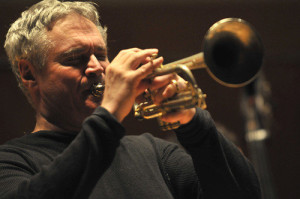
In a contemporary music scene that seems prone to conformism and fear of criticism and conflict, Jack Walrath speaks his mind and confidently shares his opinions, views and experience. He earned it after all. He left an indelible mark in the history of jazz, and he witnessed how the music and the business evolved over the years. He may sound dark at times, but it comes from a good place. To put it in his own words: “There are some of us still out there that think that jazz is innovative and forward looking, but I am afraid that they are becoming fewer.”
I, for one, wish that more musicians openly spoke their minds about the issues that affect the world of jazz, whether they be cultural, musical or related to the industry. If not the musicians, who else is going to do it? It is unquestionable that there are problems, if we were all willing to candidly discuss them maybe it would be easier to find solutions.
Mr. Walrath kindly shared his “5 Things I Wish I Knew as a Young Musician” with me, which became an opportunity for a brief interview.
Here is how it went:
— 1 —
Jack Walrath: As jazz musicians we used to complain that if the forces would only advertise then people would like it. Well they did, but unfortunately we didn’t foresee WHAT would be advertised. Now you must advertise and probably get somebody to do it. Even in jazz advertising and image is everything.
Paolo Lattanzi: In the past the “gatekeepers” (i.e. labels) used to decide what would be presented to the public, and the public decided if they liked it or not. Today, with that “gate” bashed by the internet, unceasing streams of people are trying to get through it and make their voices heard, on their own. Living the duality of businessperson and artist is not an easy task. Musicians have always been keen to find interesting ways to present their work and their own persona, but being a full time publicist is not the same. In what ways do you think that jazz artists have to adapt to this new system, and how does this affect the business compared to the way it used to be?
Jack Walrath: One must spend most of his time on business. Something that I was never particularly good at. I managed to get my own blue note dates and other dates but that was about it. There is no real promotion anymore as there was for a short time in the eighties with the “young lions” silliness. Unfortunately, the only thing held over from the eighties was the idea that you must be young. Even guys in their 40’s are having trouble getting themselves gigs now. The best self-promoters as it has always been, are often the least accomplished players. When a person works twelve hours a day promoting himself/herself trying to get gigs, then afterwards you don’t even feel like playing. Finding something on the internet isn’t like going to a record store or reading a newspaper. You have to know what you are looking for. It is like digging up your backyard to look for gold. Still, as they say, no publicity is bad publicity. The internet is simply another tool but too many take it for a brain substitute. Not just jazz, but all culture, and even human communication has been minimalised because of the internet and social media, because people will only read or look at what agrees with them.
— 2 —
JW: I wish that I would have foreseen that jazz would be relegated to background music for people eating.
PL: Is the jazz audience becoming smaller in your opinion? We still have the Vanguard, the Jazz Standard, The Blue Note, Smoke, Cornelia St., 55 bar, Smalls and several others in the City…
JW: The jazz audience is much smaller. For one thing the fee to get in is, at the lowest, twenty dollars. Those clubs pay musicians $100 a man. In the 1980’s the same clubs would pay $150 a man and the admission might be less than half. As you can see, most of the places you have listed are restaurants (some of them even call themselves “supper clubs”) with the added expense of the food, that is now the most important thing. Some jazz clubs even ask you to play under the first set because that is the “dinner set.” If a Coltrane, Miles Davis, Mingus or Sonny Rollins were to come on the scene today they wouldn’t get hired in these places. The most energy you will likely hear is from big bands who are relegated to Monday nights. I was in smalls last night and heard some of the best music I have heard in years. These groups were consisted before the eighties corporate takeover and subsequent abandonment of the music.
— 3 —
JW: I wish that I had known that jazz would degenerate into a craft and become just a series of styles.
PL: Many find labels comfortable; it must have something to do with our (complicated) relationship with freedom. I would love to hear more about your philosophy regarding what jazz is. What is jazz to Jack Walrath?
JW: Jazz is all music and all non-music that has evolved and relates to african american culture. It is music that is supposed to sound different every time you hear it. It is hard to define what it is, but easy to define what it isn’t. Other than through-composed pieces, which will still have a degree of freedom in interpretation, it isn’t pre-planned.
— 4 —
JW: I wish that I had realized that the older giants could sound as bad as anybody and their harsh treatment of us wasn’t our problem but theirs.
PL: This made me think of Buddy Rich, who was well known for being a tough leader. You have worked as sideman with a long list of acclaimed musicians and have been a very prolific leader yourself. What are in your opinion the essential qualities that a leader must have?
JW: A leader must know what he wants.
— 5 —
JW: Had I known that jazz would for the most part turn out as an intellectual exercise, I just might have gone into rock or heavy metal. When I started playing rock was wimpy and had nowhere the energy of jazz.
PL: This is a great point. What advice would you give to the young musicians out there in terms of moving forward while staying true to the tradition and to the spirit of the music?
JW: Perhaps it was better when it was more underground and there was not so much “jazz education.” There weren’t as many people out of work because there weren’t as many musicians. You had to really want to do it. Now there are many technically accomplished people coming out of schools with nowhere to go except back into the academy as teachers. This bubble will burst when students learn that they have paid hundreds of thousands of dollars to learn something they can’t use. I went to Berklee when my teachers had actually done it and there were no textbooks. There was no degree so I had 8 to 12 hours everyday of nothing but music. After three years, I knew the equivalent of any PhD. Frankly, I haven’t met one yet that knows as much because I keep studying. Most university music department heads don’t know that much because they never did it. Like any art form you must find a master and serve an apprenticeship. Because of the way jazz is “promoted” and that there are virtually no steady bands where you can actually learn your craft, the music has been in stasis for over 30 years. The idea of an innovator nowadays is somebody that might appropriate some other kind of music into his/her style. Most of what I hear of personal styles sounds like the players of the late sixties. When a guy “respects” the tradition these days, most often it is a mere facsimile. The tradition has been that of constant change informed by history. This is hard to maintain because it takes a lot of experience. Most gigs these days are one-shots. I used to do six week tours of the U.S. and Europe 10 months a year. I guess the best thing to do is play as much music as you can and if you get lucky you might hookup with one of the five or six working bands. Bear in mind that the “business” influence isn’t on working bands but the star of the week.
To learn more about Jack Walrath please visit his website, and don’t miss his Facebook group Jazz Trumpets Forum.
For more of his original music, check out his latest recording Unsafe at Any Speed.
I will leave you with a great track from Charles Mingus’ Changes Two titled Black Bats and Poles, composed by Jack Walrath.

